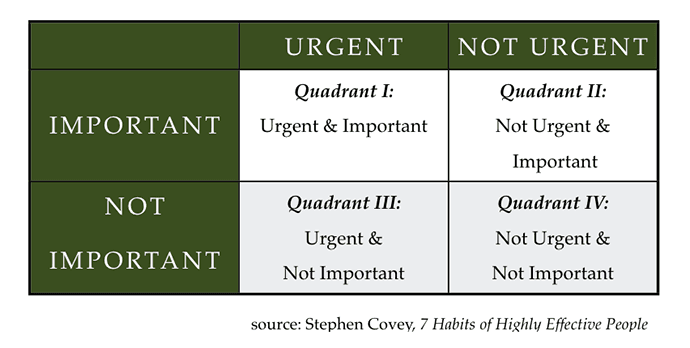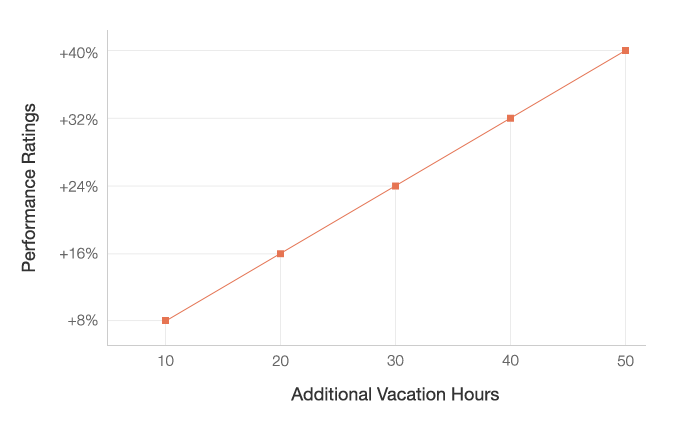Burnout in Customer Service: Tips for Staying Sane
Dodge employee burnout in customer service.
Everyone who’s ever worked for a small company understands that every now and then, you need to push a little harder.
But when every now and then turns into a regular occurrence, you’ve got a serious problem on your hands.
No employee, regardless of their position, is safe from burnout. Customer service isn’t an exception.
If anything, customer service representatives are more likely to experience stress that could lead to burning out. Having to deal with dissatisfied customers and complicated scenarios on a daily basis is a job that is emotionally more grueling than most.
Obviously, burned out support agents provide less-than-great service, which will end up hurting your company—whether at the cost of losing agents and having to hire and train new people, or just fixing a poorly done job.
Today, we’re going to look at five ways customer support agents can keep themselves in check and make sure they’re happy, productive and in the right mindset for their job.
Consciously Develop Patience
Patience is one of the essential customer service skills to have, and also the one that will help you keep your peace of mind the most.
Sometimes, your customers will be angry. Sometimes, they will need extra attention to understand things. Sometimes, things simply get difficult.
No matter the actual issue, the worst thing you can do in any of these situations—for both you and your customers—is lose your cool.

Patience not only helps you deliver better service, but a study from the University of Toronto found that being impatient not only impedes our ability to enjoy life, but it makes us worse at doing hard things (like delivering great customer service).
A number of studies have also shown that people who are patient tend to be more healthy, happy and successful—key elements to avoiding burnout and stress in general.
How do you develop patience, though?
Alex has actually published a whole separate post on the Groove Journey to $100K Blog about developing patience.
Jane Bolton at Psychology Today has also shared four great tips:
- Understand the addictive nature of anger, irritation and outrage. The more you feel these emotions, the more like you are to keep feeling them. Understanding that makes it clear why it’s so important to be more patient.
- Upgrade your attitude towards discomfort and pain. In uncomfortable situations with customers where you feel your patience wearing thin, remind yourself that “this is merely uncomfortable, not intolerable.”
- Pay attention to when the irritation/pain starts. Find the cues that cause you to lose your cool. That way, you can correct course before it’s too late.
- Control your self-talk. The things we say to ourselves have an uncanny ability of coming true, whether they’re positive or negative. So when you say “this customer is really starting to piss me off,”instead of, for example, “this is a tough situation, but I’m going to stay calm and do what it takes to solve the problem,” it can have a big impact on what the reality becomes.
Patience is one of the toughest skills to develop, yet one of the most valuable assets you’ll have as a customer service representative, when it comes to both providing great support as well as keeping yourself sane.
Be Open in Your One-on-Ones
We are a massive advocate for regular one-on-ones at Groove.
Why?
Because it’s easy for things to go unnoticed for your employer.
If you’re having a bad day or week, or are feeling more stressed out than usual, or if just about anything else is wrong, it’s easy for you to hide it.
Don’t do it.
Cultures where important things get left unsaid are unproductive, unpleasant and toxic to the business.
Be honest—even with negativity. This doesn’t mean lashing out or being aggressive, but openly voicing your concerns about anything you think isn’t quite right.
Don’t like how certain processes are built? Feel overwhelmed with your tasks? Have been feeling more stressed out than usual lately? Etc? Talk about it right away.
On more than a handful of occasions, we’ve been able to nip issues in the bud in our one-on-ones that could’ve easily become much larger problems.
These unaddressed issues, over time, make people unhappy, unfulfilled, and eager to leave. Nipping them in the bud keeps everyone happy. Help your employer and team help you.
The right kind of people will not mind, and will happily accept your feedback, even if it is a difficult topic.

This mindset, when practiced by everyone in your company—regardless of position—will start to leak into every interaction within your team and fuel honest, substantive team discussions where people feel safe, confident, and less likely to be stressed out.
Take Control over Your Time
A lot of customer support agents tend to be “yes” people. They’re problem solvers, like to help, get into everything right away and work things out—while always learning new stuff.
However, as time goes by and we grow, the backlog of opportunities, offers, tasks and obligations also grows. At some point, saying “yes” to everything that comes at you becomes damaging.
To be able to manage everything, you have to find a way to balance your time and not overwork yourself with everything that is thrown your way.
Zapier has an awesome article about how to ruthlessly prioritize your task list and avoid spreading yourself thin, and it all starts with a pretty straight-forward categorization of your task list:

If you recognize yourself as a relentless “yes” person, that’s fine.
However, it’s important to stay mindful of it and learn to recognize the signs of having too much on your plate. That way, when you’re presented with a new opportunity, you can evaluate it without feeling the need to accept immediately.
Before you take on a new commitment, find out how much time it will take, if you really have time for it, how crucial it is, and how much you actually want to do it.
Learn to Understand Basic Psychology
In a perfect world, everyone in any kind of customer-facing position would take a psychology 101 course before ever engaging in any interactions, because, as every customer service professional knows—people are complicated.
Every single one of your customers is an individual with their own backgrounds, experiences, issues and mindsets—whether permanent or situation-based.
Whatever emotional or behavioral peculiarities these people come with, you can bet that something completely outside of your control is the cause.
Dealing with hundreds of customers in a work day—with emotions ranging from anger to appreciation to aggression to apathy—is exhausting, and it’s easy to start taking it personally and acting as a sponge for customer frustration.
There are a few psychological tips that can be applied to almost every customer support situation that can help you unwind difficult customers and keep yourself from getting too tangled in the emotions.
Learning about these psychological techniques will help you understand your customers (and their underlying issues) better, which will in turn help you rationalize their behaviour and not take it personally.
Take Time Off
Regardless of which vacation policy your company has opted for, vacation is a touchy subject, and paying lip service to it isn’t enough.
Employees are scared of looking bad, or feel guilty increasing the workload of their coworkers by taking time off. This is not enough of an excuse to stop yourself from taking time off when you need it.
Ernst & Young did a study that found that for every 10 additional hours of vacation time their employees took, their performance ratings from supervisors improved by 8 percent.

At the same time, overworking without breaks takes a huge toll on our health, making us sick in all kinds of ways.
It’s easy to feel like you’re too crucial to your team to leave—and that’s very likely, especially if you work in a small company—which means that you’re probably used to working like crazy.
The important thing to remember is that working hard does not equal producing. You are far more useless to your team if you’re on the edge of burnout and putting in insane hours doing basically nothing because your brain is too fried to actually focus.
Your team can handle some time without you, and you’ll come back in a better mindset, rested and ready to go.
However, there are a few things you can do to make sure everyone is as prepared as possible for when you’re not present.
1) Build Vacation Time into Your Own Roadmap
One of the most important resource planning lessons we’ve learned at Groove is to budget liberally for vacation time and sick days, so that they never come as a surprise.
2) Frontload the Work
Think about what needs to be done while you’re away, and do your best to minimize what gets left to your teammates. By doing the extra work up front, you let the company run as seamlessly as possible without you.
And, mind you—taking time off actually means taking time off. A vacation isn’t a vacation if you keep checking your email or work chats because of plain and simple FOMO.
Avoid Burnout by Learning andReaching Out
Customer service jobs aren’t supposed to be easy—there are too many basic human emotions and difficult situations involved to hope for that.
However, they shouldn’t be the cause of a heart attack, either.
Learning to know (and respect) yourself and your limits, recognizing the signs of having too much on your plate, and feeling comfortable being open when you’ve got something on your mind are the foundation for staying sane, happy and productive.
Did you ever feel you reached the point of burnout in a customer service role? What are your ways to overcome stress to prevent things going too far? Let us know in the comments!